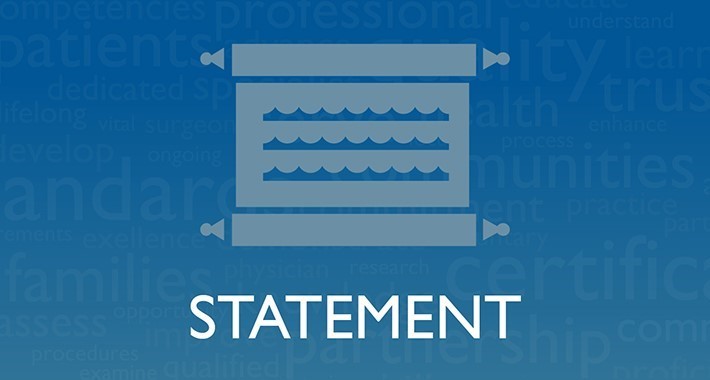
PREAMBLE
Society expects physicians1 to put patient needs above their own, respect patient values and preferences, protect patient safety, maintain clinical competence, and promote health and well-being. Physicians expect social policy to support a health system that is sufficiently resourced, committed to optimizing health and healing, and trusts the profession to set and enforce high standards of clinical expertise.
Effective self-regulation requires that the profession holds itself accountable for maintaining high standards of specialty care and professionalism. Certification by a Member Board of the American Board of Medical Specialties (ABMS) plays a critical role in this system by permitting physicians to demonstrate the clinical competence and professionalism that justify deference to the profession. Government plays a complementary role through a legal and regulatory framework that enforces standards across the health system in which specialists practice. The social contract is fulfilled when the profession and government work in alignment, sharing accountability for protecting patient welfare and improving access to person-centered, high-quality health care. Laws or rules that conflict with standards set by the profession destabilize the social contract, undermine the legitimacy of professional oversight, and put the patient and population’s health at risk.
POSITION STATEMENT
ABMS believes that medical professionalism and its values are foundational to a system that provides safe, reliable, high-quality patient care. The profession must set, maintain, and enforce the highest standards for clinical competence and accountability, and physicians must be permitted to practice according to those standards.
ABMS will advocate for a system that:
- Provides patients access to up-to-date, scientifically supported specialty care.
- Permits patients and caregivers the freedom to make health care decisions for themselves and their families in partnership with their physicians.
- Respects the role of the medical profession to define the knowledge and skills necessary to provide expert specialty care to patients.
- Permits physicians to practice according to the standards of their specialty.
- Supports the role of professional certifying organizations to assess physicians on their specialty knowledge and clinical skills to determine whether they demonstrate the competencies and professionalism expected of certified specialists.
- Fulfills the obligation of the profession to set standards for undergraduate, graduate, and continuing medical education that will equip physicians with necessary specialty-specific knowledge, skills, and abilities.
- Preserves the authority of state medical boards and certifying bodies to enforce professional conduct codes.
RATIONALE
Emerging laws and regulations contradicting clinical and ethical guidance set by the profession and undermining the ability of licensing boards and certifying agencies to enforce professional conduct codes have the potential to reduce access to necessary medical care, increase mortality and morbidity, and exacerbate health inequalities. The current legal, regulatory, and political climate will affect all phases of medical education, training, certification, and ultimately will decrease access to specialty expertise.
Public trust in physician certification requires that it be free to set standards for training, education, and practice based on the best available science and clinical consensus so that specialists are equipped with the highest known level of clinical and professional expertise. Interference with the ability of medical licensure, educational accreditation, and specialty certification to fulfill this duty disrupts the social contract and undermines public trust in the profession. Government should work in partnership with patients and physicians to uphold the social contract and should not impose a political agenda at the expense of public safety.
When there is a misalignment between the legal and private systems that regulate the profession of medicine, the entire system of self-regulation is jeopardized. When care is criminalized, as is the case in more than 15 states, trust in government to fulfill its duty to both physicians and patients is eroded. When laws and regulations do not align to a standard of practice developed by a specialty on a politically divisive topic, ABMS will support the specialty to develop its standards and will support physicians in that specialty to practice to the standards set by their specialty.
[1] This Position Statement uses the term physician notwithstanding the fact that ABMS boards certify non-physician specialists in some specialties. This is because the legislation and practice standards at issue, as well as the traditions of professionalism, are specific to the medical profession.
Download this statement: ABMS Position Statement on Upholding Standards in Specialty Practice[PDF]
-
Read More:
- Policies |
- Statements |
